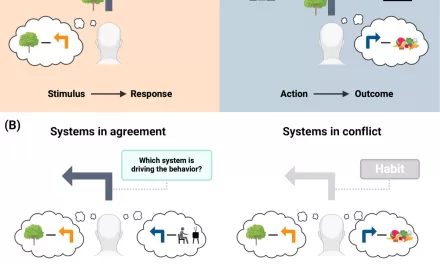January 16, 2025 – A recent study has found a strong association between red meat consumption and an increased risk of dementia and cognitive decline. Published in the journal Neurology on January 15, 2025, the research suggests that eating larger amounts of red meat, particularly in processed forms, can elevate the risk of developing cognitive impairments, including dementia.
The study, conducted by researchers from Mass General Brigham, Harvard T.H. Chan School of Public Health, and the Broad Institute of MIT and Harvard, analyzed data from over 130,000 individuals over a span of decades. Their findings suggest that replacing red meat with healthier protein sources like nuts, legumes, or fish could potentially reduce the risk of dementia by as much as 20%.
Dr. Daniel Wang, the study’s corresponding author and a member of the Channing Division of Network Medicine at Brigham and Women’s Hospital, emphasizes the need to consider cognitive health when discussing dietary guidelines, which have traditionally focused on chronic conditions such as heart disease and diabetes. “We hope our results encourage greater consideration of the connection between diet and brain health,” Wang said.
The study tracked participants from two major studies: the Nurses’ Health Study (NHS) and the Health Professionals Follow-Up Study (HPFS), both of which have provided long-term data on health and lifestyle factors. The participants, with an average age of 49 at the beginning of the study, were monitored for up to 43 years. During that time, 11,173 participants were diagnosed with dementia.
The researchers found that individuals who consumed more processed red meats—such as bacon, bologna, and hot dogs—had a 13% higher risk of developing dementia compared to those who consumed minimal amounts. Notably, the study also revealed that those who ate processed meats daily had cognitive aging that accelerated by 1.6 years per serving.
Even unprocessed meats like beef, pork, and hamburgers were linked to a higher risk of cognitive decline. Consuming one or more servings of unprocessed red meat daily increased the risk of subjective cognitive decline (SCD) by 16%, compared to those who ate less than half a serving per day.
One of the mechanisms being investigated by the researchers is the role of the gut microbiome in this link. A compound called trimethylamine N-oxide (TMAO), produced during the digestion of red meat, has been implicated in cognitive dysfunction, though further research is needed to confirm this. The saturated fats and salt found in red meat are also believed to negatively affect brain cell health.
As the U.S. population ages, dementia is becoming an increasingly significant public health issue. The study’s findings could have important implications for dietary recommendations, particularly as they highlight the broader impacts of red meat consumption on both heart health and cognitive function.
“This research is part of an ongoing effort to understand the mechanisms causing dementia and cognitive decline,” said Dr. Wang. “Long-term cohort studies like ours are essential for uncovering the risk factors that contribute to these conditions.”
The full details of the study, titled Long-Term Intake of Red Meat in Relation to Risk of Dementia and Cognitive Function in US Adults, are published in Neurology (DOI: 10.1212/WNL.0000000000210286).
For more information on dietary recommendations and cognitive health, the public is encouraged to consult healthcare providers or refer to the study’s findings in Neurology.












